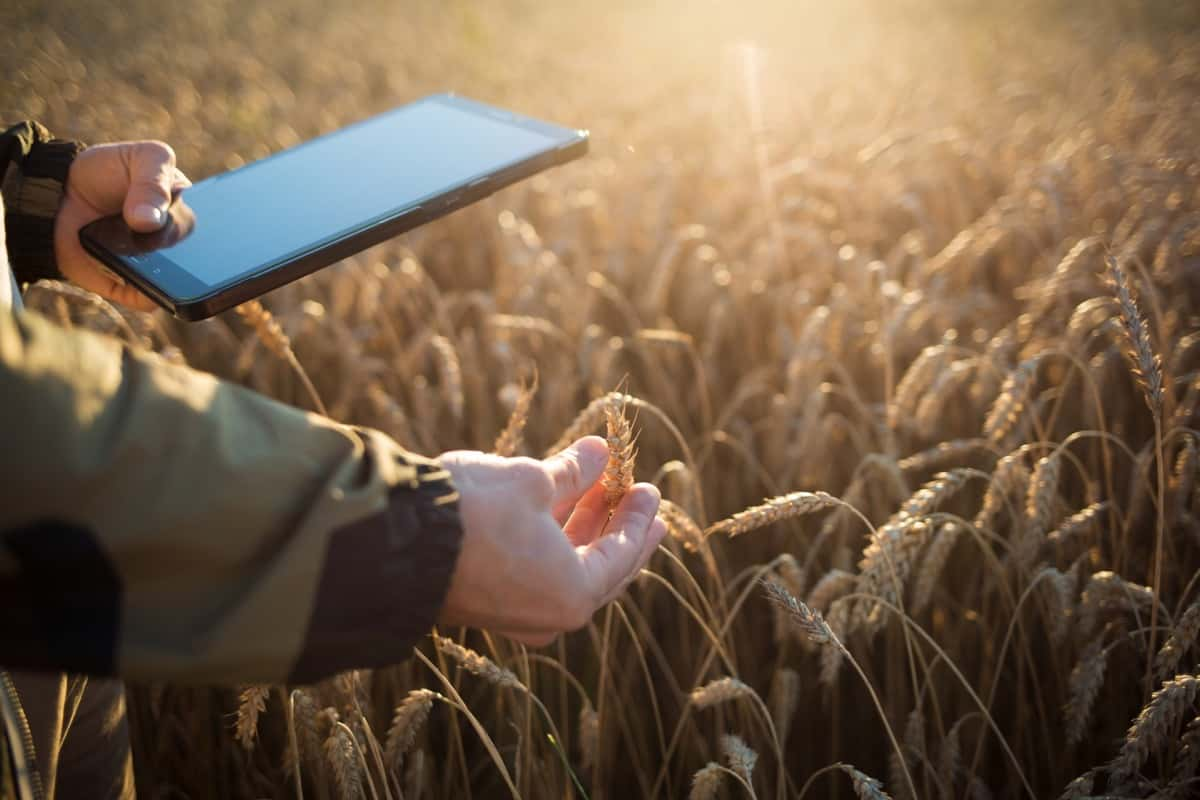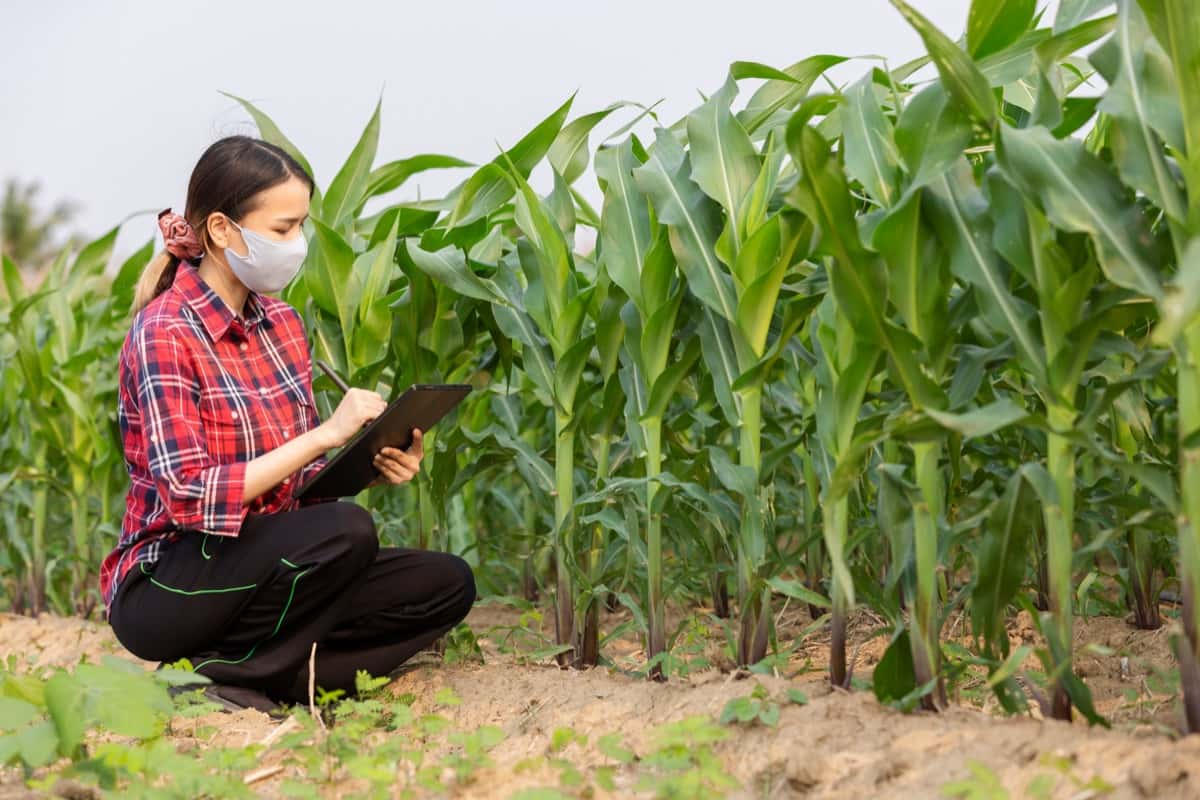There has been a significant increase in interest in blockchain technology recently due to its potential to revolutionize various industries, including the management of food supply chains. By leveraging blockchain’s decentralized and transparent nature, the food industry can address several long-standing challenges and improve overall efficiency.

Blockchain In Food Supply Chain Management
Benefits and Challenges of Implementing Blockchain in the Food Supply Chain
In the food supply chain, enhanced traceability is one of the key benefits that can be achieved by implementing blockchain technology. The technology allows for recording every transaction and movement of food products, ensuring complete visibility from farm to fork. This can help identify the source of contamination or quality issues, reducing the time and effort required for recalls.
Another advantage of blockchain is increased trust and authenticity. Blockchain can provide an immutable and tamper-proof record of information that can aid in verifying the authenticity of food products, ensuring that they are sourced from reputable suppliers who meet the necessary quality standards and are traceable. However, implementing blockchain in the food supply chain comes with its own challenges.
One major challenge is the integration of existing systems and technologies with blockchain. Many food companies already have established systems and processes, and integrating blockchain can be complex and require significant investment. It is also challenging to ensure the privacy and security of data. Despite its transparency, blockchain raises concerns about the privacy of sensitive information. Robust security measures must be implemented to protect your data from unauthorized access or manipulation.
How Blockchain Enhances Transparency and Traceability in the Food Industry
The blockchain will provide a secure and transparent record of every step in the food supply chain by providing a decentralized and immutable ledger. This allows consumers, regulators, and stakeholders to easily track and verify food products’ origin, quality, and safety.
Additionally, blockchain can help reduce fraud and counterfeiting by ensuring that the information recorded on the blockchain is reliable and tamper-proof. Despite the promising benefits, implementing blockchain in the food supply chain also presents challenges, such as interoperability, scalability, and data privacy concerns.
Improving Food Safety with Blockchain Technology
Blockchain technology has been introduced and evolved as a game-changer in many industries, and the food supply chain is no exception. With its decentralized and immutable nature, blockchain offers several benefits in improving food safety. By utilizing blockchain, the entire food supply chain can be traced and verified, ensuring the authenticity and quality of the products.
This technology enables real-time monitoring of food conditions, reducing the risk of contamination and spoilage. Additionally, blockchain provides transparency and accountability, enabling consumers to make informed decisions about their food. However, implementing blockchain in the food supply chain also comes with challenges, such as integration issues and the need for industry-wide collaboration.
Enhancing Efficiency and Reducing Costs in the Food Supply Chain through Blockchain
In the supply chain process, blockchain can provide transparency and traceability due to its decentralized and immutable nature. This enables stakeholders to identify and address inefficiencies, reduce food waste, and improve overall supply chain management. Additionally, blockchain can streamline payment processes, eliminate intermediaries, and enhance participant trust.
In case you missed it: Cauliflower Disease Resistant Varieties: Protecting Your Harvest with Smart Plant Selection

It is clear that the adoption of blockchain technology in the food supply chain has the potential to revolutionize this industry, improving efficiency and reducing costs for all stakeholders involved in food distribution.
Leveraging Smart Contracts for Automated Transactions in the Food Industry
Smart contracts are self-executing agreements that are written on blockchain platforms. The food industry can enhance transparency, traceability, and efficiency by implementing smart contracts. These contracts can automate various processes, such as payment settlements, supply chain management, and quality control. Additionally, smart contracts can reduce the risk of fraud and ensure regulation compliance. Leveraging smart contracts in the food industry enables seamless, secure, and efficient transactions, improving customer trust and overall industry growth.
Blockchain Applications for Inventory Management and Tracking in the Food Supply Chain
By leveraging its decentralized and immutable nature, blockchain can enhance transparency and traceability in the entire process. With blockchain, stakeholders can record and verify each transaction, ensuring the data is tamper-proof and accurate. This technology enables real-time monitoring of inventory levels, reducing the risk of stockouts or overstocking.
Additionally, blockchain can track the origin and journey of food products, enhancing food safety and quality control. The food industry can optimize inventory management and ensure a more secure and efficient supply chain by implementing blockchain applications.
Ensuring Authenticity and Preventing Counterfeit Products with Blockchain
Blockchain technology has evolved as a powerful tool in the fight against counterfeit products, providing a secure and transparent way to ensure authenticity. By leveraging blockchain, companies can create a digital ledger that records every transaction and transfer of ownership, making it virtually impossible to tamper with or replicate.
With this technology, customers can verify the product by QR code scanning or accessing the blockchain database. The decentralized nature of blockchain also eliminates the need for intermediaries, reducing the risk of counterfeit products entering the supply chain. Overall, blockchain is revolutionizing the authentication process and safeguarding consumers from purchasing counterfeit goods.
Using Blockchain to Improve Sustainability and Ethical Sourcing in the Food Industry
As the food industry moves towards sustainable sourcing and ethical sourcing, blockchain technology has the potential to enhance sustainability and ethical sourcing significantly. By utilizing blockchain, companies can create transparent and immutable records of every step in the supply chain, from farm to fork.
This enables consumers to trace the origin of their food and verify its authenticity. Additionally, blockchain can ensure fair payment to farmers and suppliers, minimizing the risk of exploitation. Implementing blockchain in the food industry can promote accountability, trust, and sustainability, ultimately benefiting consumers and producers.
In case you missed it: Top 9 Farming Apps in the USA For Smart Agriculture Solutions

Future Trends and Potential of Blockchain in Revolutionizing Food Supply Chain Management
In the future, blockchain technology will be able to revolutionize the food supply chain management industry in various ways. In addition to its decentralized and transparent nature, blockchain can able to provide a secure and immutable record of every transaction and movement within the supply chain due to its decentralized and transparent features. This can help in tracing the origin of food products, ensuring their quality and safety.
Additionally, blockchain can enable faster and more efficient transactions by eliminating intermediaries and reducing paperwork. By implementing blockchain, the food industry can enhance transparency, reduce fraud, and build consumer trust, ultimately leading to an efficient and sustainable food supply chain management system.
Conclusion
Blockchain technology in the food supply chain management system offers numerous benefits. However, challenges such as system integration, scalability, and governance need to be overcome for the successful adoption of blockchain in the food industry.
- Feed Your Flock for Less: Top 10 Tips to Save on Chicken Feed
- Ultimate Guide to Ossabaw Island Hog: Breeding, Raising, Diet, and Care
- Hatching Answers: The Top 10 Reasons Your Chickens Aren’t Laying Eggs
- Eggs and Economics: Breaking Down the Cost of Raising Backyard Chickens
- Defend Your Greens: Proven Methods to Keep Iguanas Out of Your Garden
- Ultimate Guide to Cinnamon Queen Chicken: A Comprehensive Guide for Beginners
- Ultimate Guide to California Tan Chicken: Breeding, Raising, Diet, Egg-Production and Care
- Ultimate Guide to Marsh Daisy Chicken: Breeding, Raising, Diet, and Care
- 10 Types of Chicken Farming Businesses You Can Start for Profits